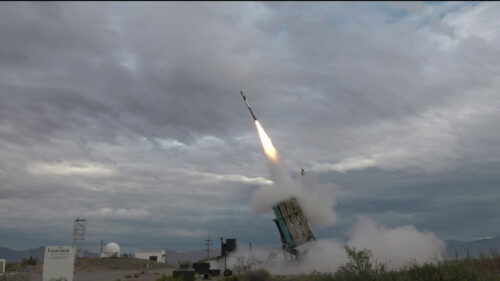The United States Marine Corps (USMC) is poised to bolster its defense capabilities with the acquisition of the Iron Dome air defense system, a move outlined in an official notice of intent recently published on the System for Award Management site. This strategic procurement involves the acquisition of 1,840 Tamir interceptor missiles, 44 launchers, and 11 US-made command centers, signaling a significant enhancement to the Marine Corps’ air defense capabilities.

At the heart of this acquisition is the Medium-Range Intercept Capability (MRIC), a pioneering system that merges the advanced technology of Israel’s Iron Dome air defense system with the operational requirements of the US Marine Corps. The Iron Dome, initially designed to intercept rockets, has evolved over time to counter various threats, including mortar shells, unmanned aerial vehicles, and cruise missiles.
The MRIC concept represents the culmination of collaborative efforts between the Iron Dome’s manufacturer, Rafael, and the US-based Raytheon. This fusion brings together the proven effectiveness of the Iron Dome’s interceptor missiles with the Marine Corps’ radar and command center infrastructure. Notably, this partnership aims to create a comprehensive air defense system capable of addressing an array of threats in the medium-range domain.
The MRIC system has already undergone rigorous testing to validate its operational efficacy. The US Marine Corps successfully conducted two comprehensive series of tests with MRIC in both July and October of 2022. These tests not only demonstrated the system’s reliability but also affirmed its potential to serve as a vital component of the Marine Corps’ defense strategy.
While the exact financial cost of this acquisition remains undisclosed, it is widely anticipated to amount to hundreds of millions of dollars. The significant investment underscores the Marine Corps’ dedication to fortifying its air defense capabilities and safeguarding national security interests.
This development builds upon a 2019 agreement between Israel and the United States, through which two Iron Dome batteries were sold to the US. The collaboration aimed to integrate the Iron Dome system into the U.S. Army’s air defense architecture. However, issues related to source code access and system integration initially posed challenges, eventually prompting further testing and development.
For more information, hit the Source below